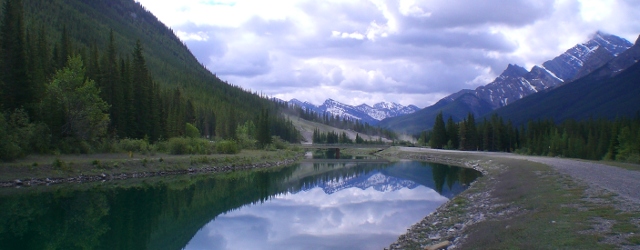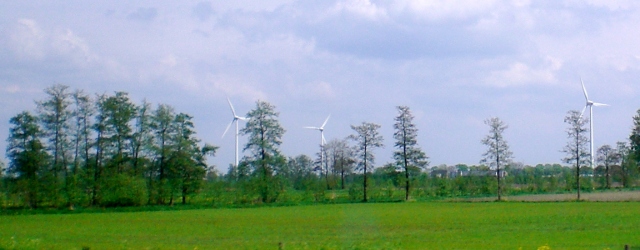A brief introduction to some of the basic language of economics. This should be understandable even for those with nothing more than personal experience in the modern world.
Author: Ben Harack

Solar Thermal Power
Solar thermal power generation presents a unique opportunity among renewable technologies today. It is well-understood. Prototypes and commercial power plants of this sort exist. It has capabilities for both baseload and peak-matching power generation. It is affordable in locations with lots of sunlight. Costs are in the range 10-15¢/kWh currently, with great potential for the future.
Feed-In Tariff: Government Encouraging The Market
The feed-in tariff is a well known policy mechanism in the area of electricity generation. It has been applied in many countries with the intent of encouraging the development of renewable power generation. Such a policy typically involves guaranteeing to desired types of generation both subsidized long term prices for electricity and guaranteed grid access. This policy has been well utilized notably in Germany and Spain, where residents have seen very stable electricity prices coupled with tremendous growth of the renewable energy sector of their economies.

Leverage hydro to use wind
When wind isn’t blowing hard, use a dispatchable source such as hydro to produce power. Let’s assume that we have 150 MW of hydro on hand to cover the Centennial Wind Farm when the wind isn’t blowing. If we look at entire year of production, we can expect that about 42.4% of all energy will have come from the wind, and that the remaining 57.6% of the energy would have come from the hydro. What is necessary for a system like this to work is to have enough water behind the hydro dam that it can cover a fairly long spell of low winds. This could be as long as several days. If our hydro reservoir is big enough to cover that time, we should be able to cover the intermittent nature of the wind for the whole year. If it isn’t big enough, we will have to get our power from elsewhere. Perhaps importing it from neighboring grids or by using another source such as natural gas.
Reliable power rather than baseload
What people really want is reliable power. We don’t want to end up freezing in the dark. Electricity is important enough to our society that our energy security is of great importance to us. This is a fundamental issue that all technically advanced nations have to face.
It would be a mistake to equate baseload with reliable. Baseload power sources still have to turn off sometimes. In some cases, the downtimes for the big thermal plants such as nuclear and coal can be several percent of their lifetimes. If our power grid were based off of only baseload sources of this type we might see rolling blackouts now and then unless we built extra power plants to cover the downtime.
Electricity Grid: Key Terms and Definitions
In the most general sense, we are talking about moving power from one place to another. The electric grid accomplishes this by having power lines between generation stations and demand locations such as homes and businesses. Some general rules apply to this sort of technology. The more power you have to move, the more expensive it will be to build the infrastructure to do it. The further you have to move the power, the more energy losses you are going to have in doing so. These rules apply in general, but the specifics of a problem will dictate what sort of solution is applied.
Incentives to build renewable in Saskatchewan
We proposed a feed-in tariff for renewable energy resources such as wind, solar, and hydro power. What this means is basically that people or companies who produced power from these sources would be paid more for their electricity than non-renewable providers. See our proposal for more details about the practicality and effectiveness of a feed-in tariff as well as more detail on tailoring the solution for Saskatchewan. The intent of this policy mechanism is to stimulate an increase in private investment into these technologies.

Does nuclear power lead to weapons proliferation?
Arguments can certainly be made to support either side of this argument. This article gives examples of valid arguments on both sides of the issue. In general it is clear that understanding of nuclear energy fundamentals is a prerequisite for creating nuclear weapons. In this area however, the proverbial cat is out of the bag. Pandora’s box has been opened. The knowledge exists and is relatively widespread. The real question is what to choose to do with the knowledge that the world now has.
Would nuclear be too expensive for Saskatchewan?
This piece refers to kilowatt-hours (kWh) and costs-per-kWh as well as cost per installed watt ($/kW). If you are new to these units, please consult our introduction to energy system terms. In this area of knowledge, we defer to our publicly-owned utility for the best possible answer. Sask Power’s analysis in 2009, submitted to the […]
Does nuclear waste last millions of years?
Prior to reading this article, it is recommended that you read our basic definitions for discussing nuclear science. In this article we refer to ‘used nuclear fuel’ and to ‘nuclear waste’. For our current discussion these are both the same thing. To get a deeper understanding of nuclear power in general, see our general nuclear […]
Does nuclear power cost more than other options?
While some variants of nuclear power plants are estimated to cost up to five times as much as competing technologies such as minimally-compliant coal power, these are extreme examples. Most populations will not allow minimally-compliant coal plants to be built because of their substantially dangerous pollution as well as radioactivity levels far above those of a nuclear power plant. Their radioactive and chemical emissions come in the form of massive fly ash ponds as well as airborne fly ash emissions.
Review of ‘The Measure of Man’
This book was published in 1954, amid what the author, Dr. Joseph Wood Krutch, calls ‘The Age of Anxiety’. The world had just suffered through two wars that heavily eroded the optimism that had existed at the beginning of the 20th century. The tremendous destruction had seriously shaken the ideals of the world. This led […]
Mining Corporation vs. El Salvador
Canadian mining companies are the apparent villain in a number of central and south american mining disputes lately. Copper Mesa Mining Corporation, formerly known as Ascendant Copper is the major player in a recent documentary film called Under Rich Earth. The film is highly recommended for anyone interested in the conflict between the people of Ecuador […]
Nuclear Plants Need Backup Generators
A power utility has to have the capability of calling into service enough power to make up for the loss of its largest generator on short notice. For a nuclear generator, this would be between 300 and 2000 MW. In our home province of Saskatchewan, the largest single generator SaskPower has to keep backup capacity for currently is a 300MW coal unit. However, if the entire Boundary Dam facility went down, the Saskatchewan system could be missing as much as 813 MW of power.

What does ‘renewable’ mean after all?
If you think of renewable sources of energy you probably think of things like wind turbines, solar panels, biomass plants, and hydroelectric plants. However, these are just examples. What does it mean to be renewable?
Before Vision of Earth Existed
Compelling ideas of what might be possible In 2007, many of us had our reasons to be discontent with the state and direction of our society. This is not to say that we were not grateful to be living in such wondrous times in a country of great affluence. We were acutely aware even then […]
New Server for Vision of Earth
Due to some server troubles, we were down for several days earlier in the month. Our webmaster took this opportunity to look into our hosting options. The new solution that he has implemented is a virtual machine hosted on servers directly connected to an Internet backbone in Freemont, California. It is our expectation that this […]
Vision of Earth’s New Forum
Forum for contribution and discussion UPDATE: The forum has been removed from the site. We now have a new forum. You can get there at any time by clicking the “Forum” link near the top of the page. The forum in its current state was designed by Ben with the help of the rather impressive […]
Chevron’s Orphan Basin Project Under Scrutiny
Chevron says that it would not be able to clean up if its proposed deep sea rig off the coast of Newfoundland had a similar disaster to that currently happening in the Gulf of Mexico. They estimate extremely small possibilities of any major spills, but there are valid concerns about the sheer scale of what […]
Regina Farmer’s Market
Eat fresh and locally at City Hall every Wed. and Sat.